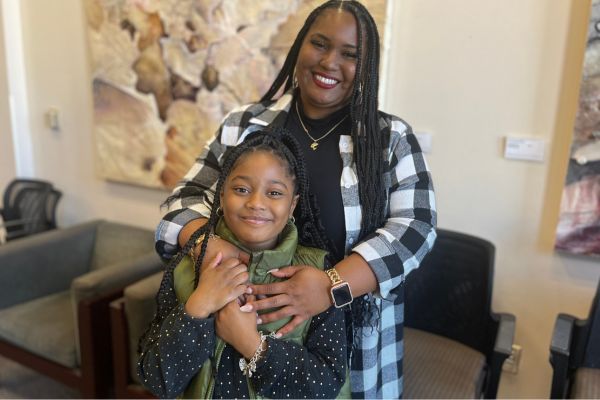The talk will raise awareness about sickle cell disease, its impact on the community and advances in treatment
To help commemorate Sickle Cell Awareness Month, South Texas Blood & Tissue and DreamVoice invite the community to join in a conversation about sickle cell disease on Saturday Sept. 14, at the Barbara Jordan Community Center, 2803 E. Commerce St., from 10 a.m.-noon. The event is free and open to the public. Parking and refreshments will be provided.
A panel of experts will discuss and answer questions about sickle cell disease (SCD) and offer ways to be an advocate in the community.
The panel, moderated by Dr. Kenneth Kemp M.D., Senior Pastor at Antioch Baptist Missionary Church, will include Dr. Melissa Frei-Jones, a pediatric hematologist and oncologist at University Health and UT Health San Antonio and a nationally recognized expert on treating sickle cell anemia, Audra Taylor, Vice President of Blood Services, South Texas Blood & Tissue and Shanice Bishop, whose daughter, Lyric, lives with sickle cell.
Sickle cell disease is a blood disorder that causes pain, anemia and organ damage. It is passed on through a sickle cell trait (SCT), a gene mutation inherited from parents.
- According to research from the Centers of Disease Control and Prevention (CDC), about one in 13 Black or African American babies are born with sickle cell trait,
- More than 100 million people worldwide carry sickle cell trait, according to the American Society for Hematology.
When Lyric was born, her mother Shanice didn’t know what sickle cell disease was. Discovering her newborn was born with it shook her world. Lyric is a normal, happy teenage girl, until sickle cell rears its ugly head, and she feels excruciating, crippling pains throughout the night and day. She explains it as a stabbing pain that causes her to scream at the top of her lungs.
Although there are many advances being made to combat sickle cell, patients often need frequent blood transfusions from donors who have a healthy, genetic match.
People of African descent are 10 times more likely to be a suitable blood match for patients in need of blood that lacks specific red blood cell antigens, according to statistics from America’s Blood Centers.
“You have a kid that’s in excruciating pain, screaming at the top of their lungs…it cripples them… They can’t do…anything,” Shanice said. “You go from that and then get to the hospital and get some blood and –what I’ve seen in my daughter–as soon as she gets a blood transfusion, you see a 180 difference in the way it affects her.”
Sickle cell affects approximately 100,000 Americans and occurs among about one out of every 365 Black or African American births. It affects one out of every 16,300 Hispanic American births, according to the CDC.
Lyric and her mother will share their first-hand experience at the conversation on Sept. 14
For more information on the conversation visit dwsa.link/sicklecell.

